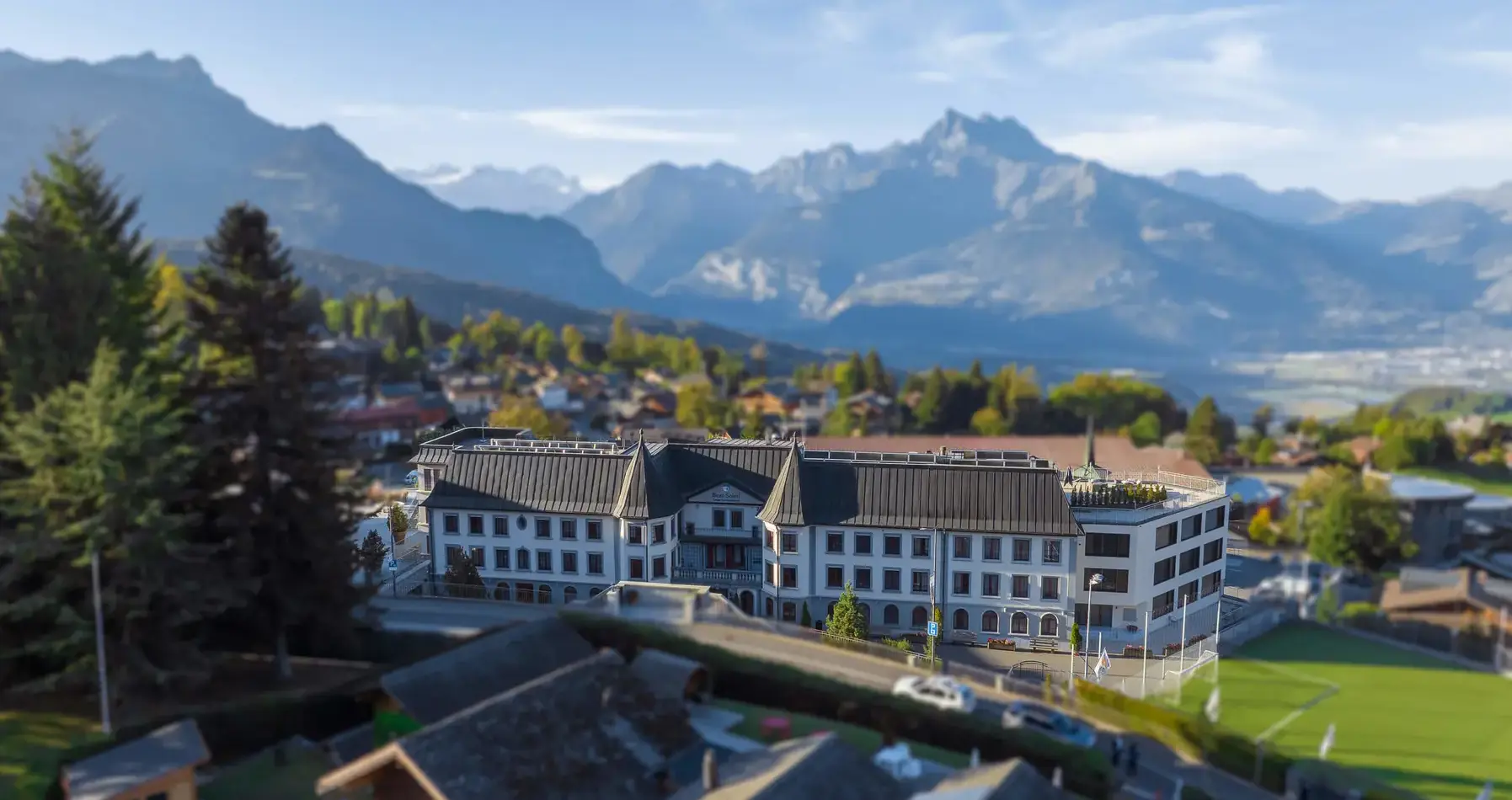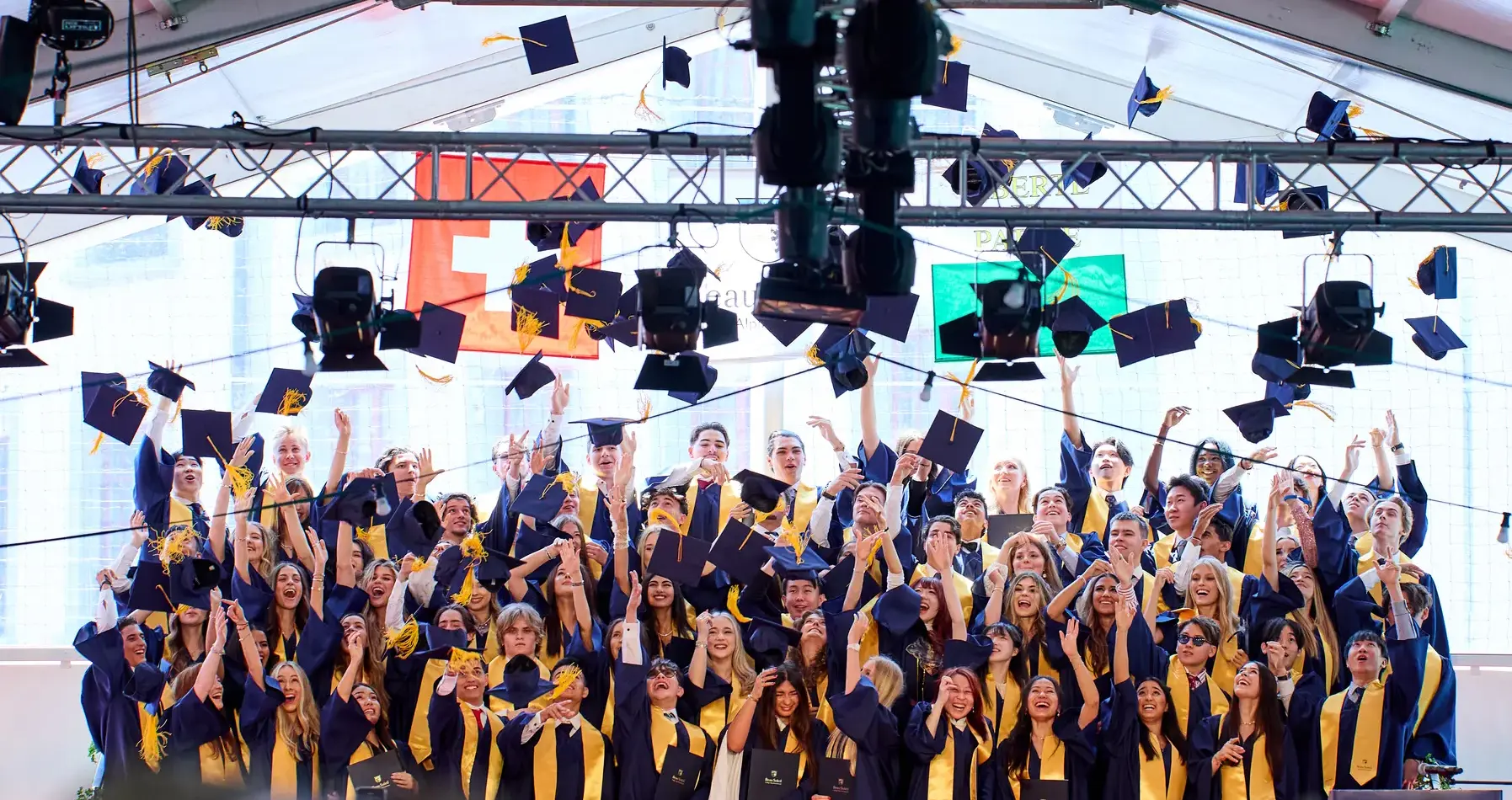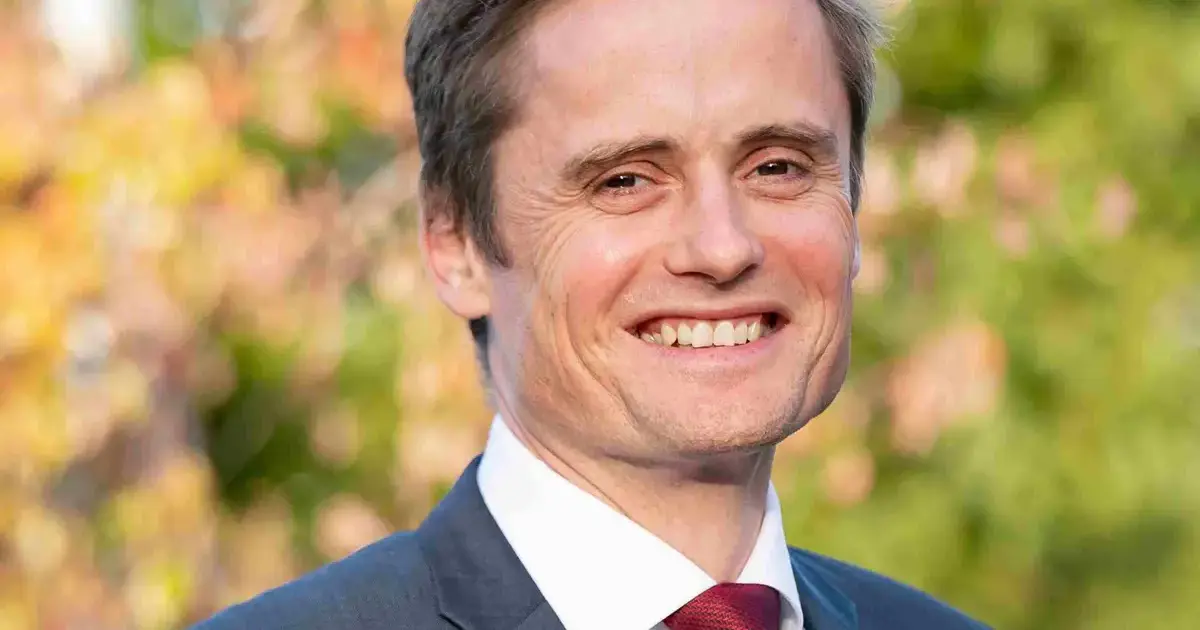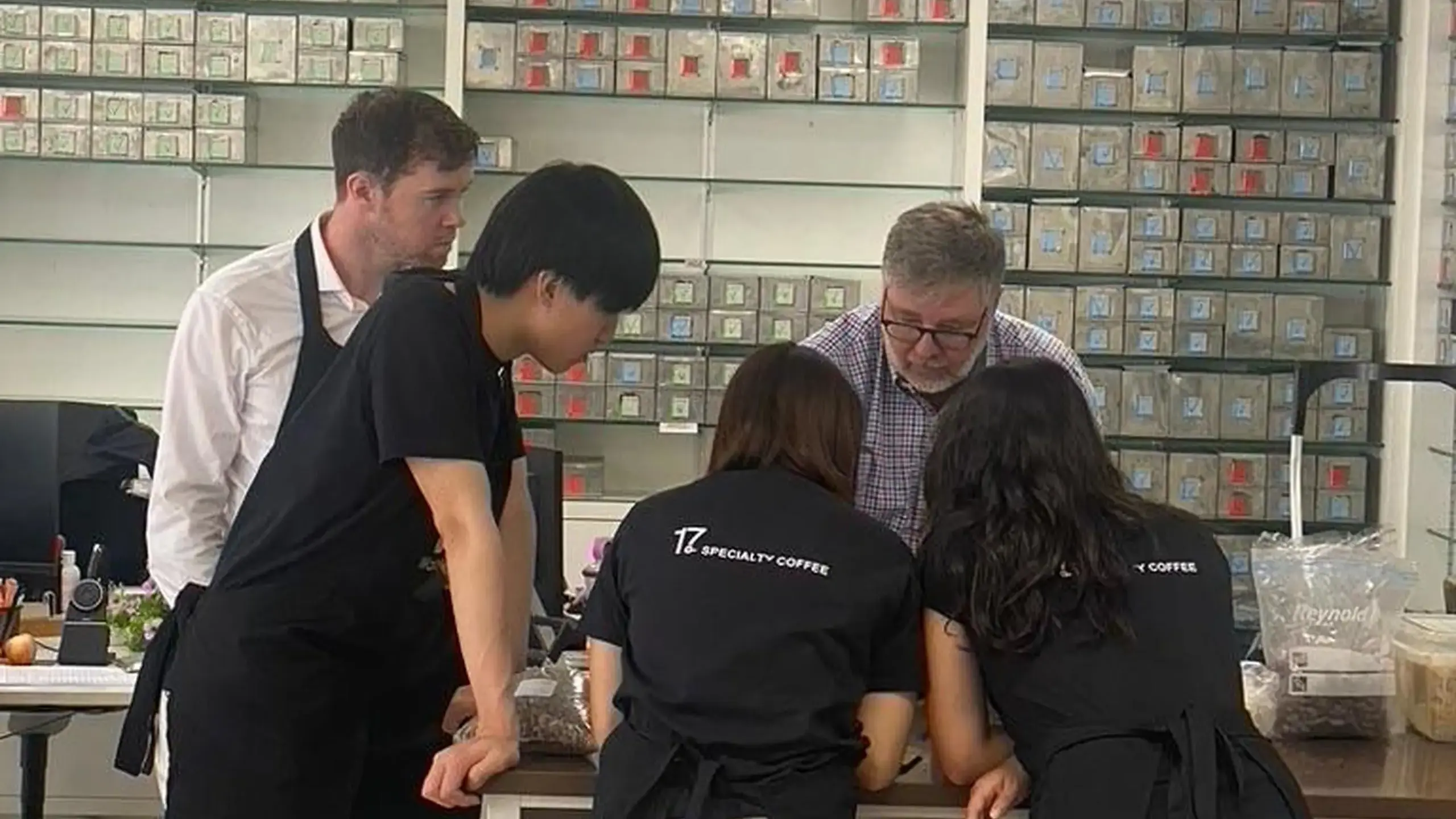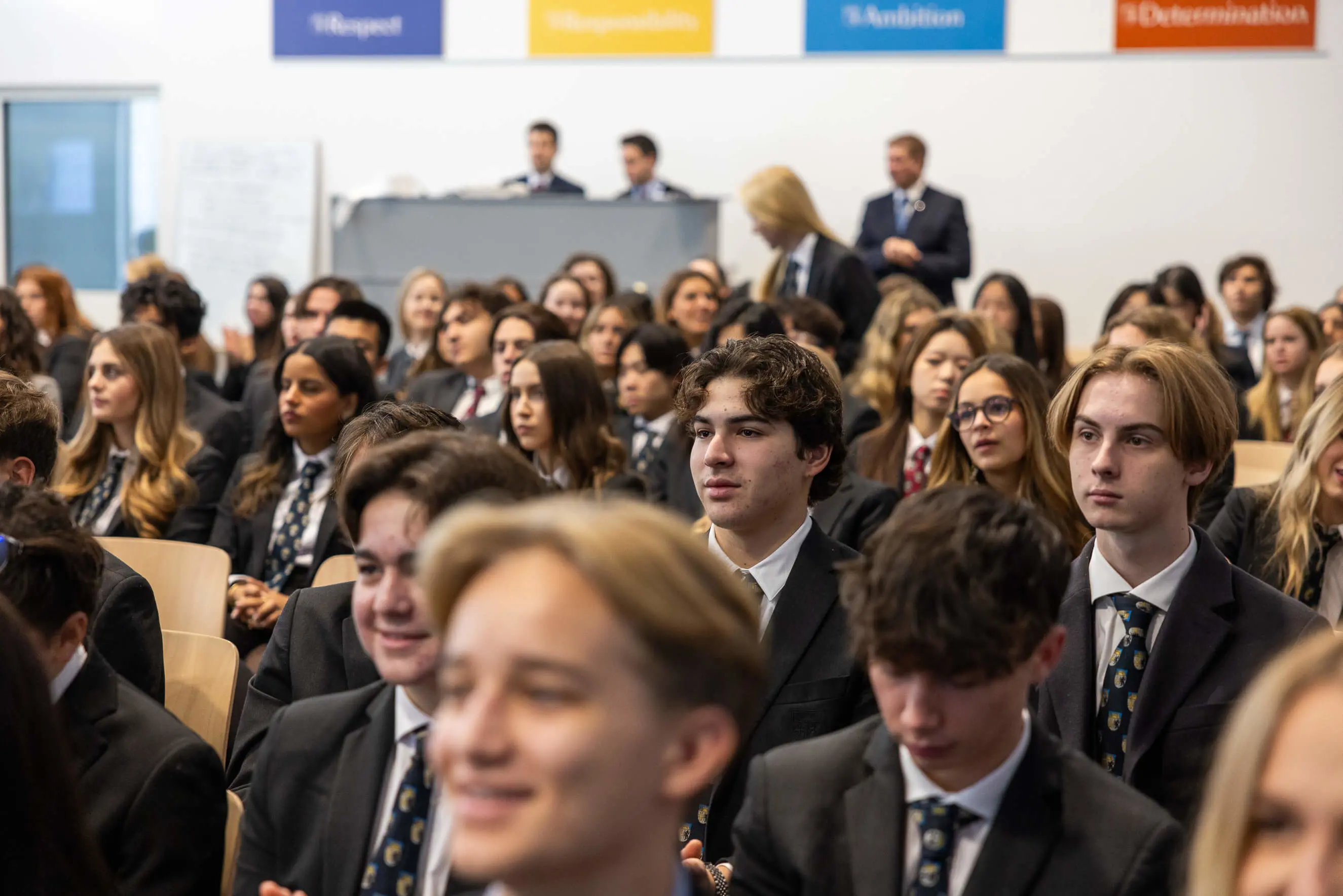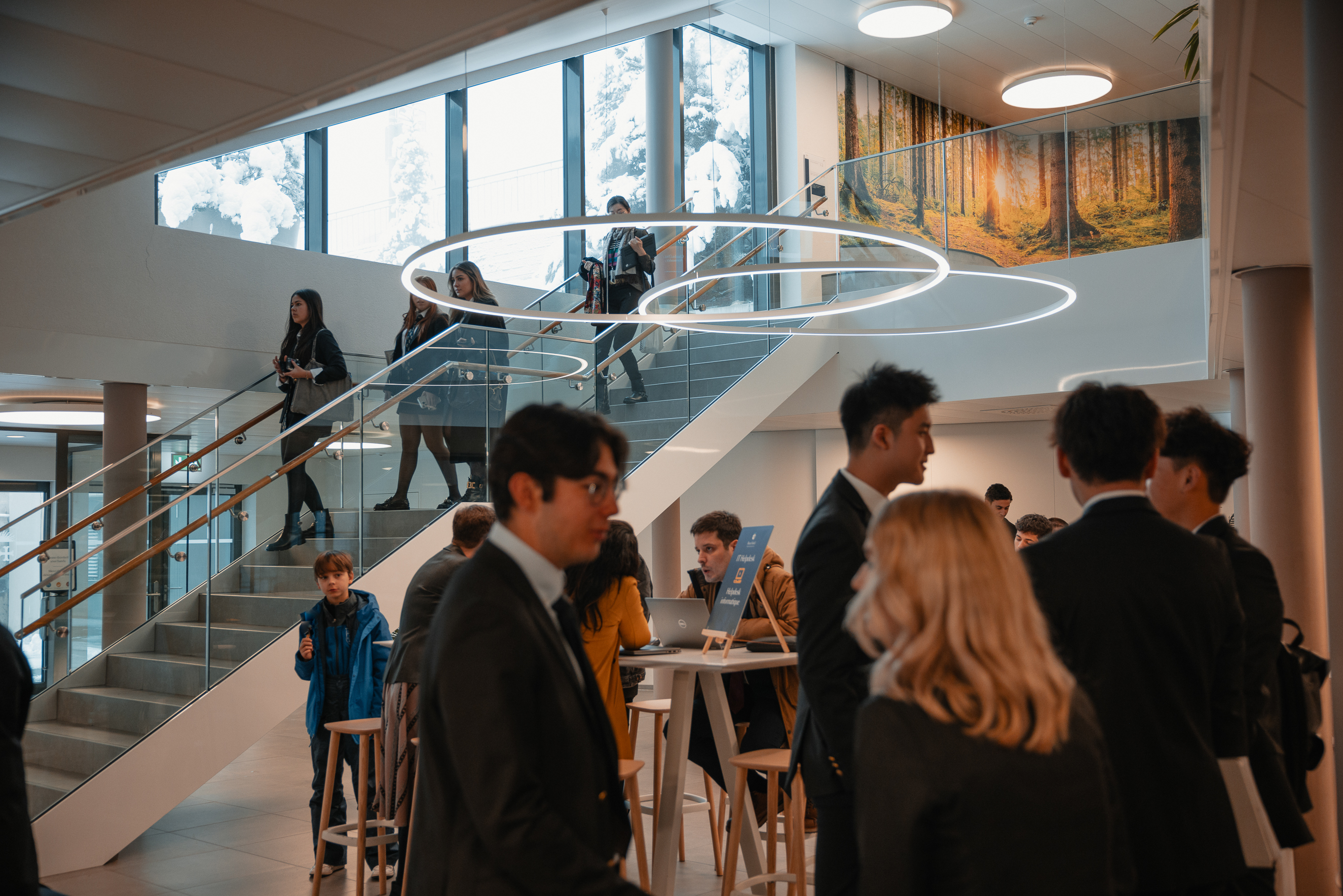Why Are Swiss Schools So Expensive?
When parents start exploring international boarding schools, one question tends to pop up quickly: Why are Swiss schools so expensive?
Switzerland is home to some of the most elite and costly educational institutions in the world. While the price tags are among the highest globally, it's not without reason.
This guide explores what makes Swiss boarding schools so exceptional. From their heritage of academic excellence to the unparalleled lifestyle these schools offer. We'll examine the key factors behind the high costs and the value parents can expect in return.
Let’s begin.
12 Key Benefits of a Swiss Education
- Excellence in Every Detail
- Flexible, Rigorous Academics
- Multilingual, Global Education
- Personal Growth Comes First
- Unmatched Co-Curricular Options
- Preparing Students for Real Life
- Safe, Stable, and Private Environments
- Lifelong Value & Global Connections
- World-Class Campus Facilities
- Personalized Learning & Small Class Sizes
- 24/7 Boarding Care & Comprehensive Support
- Sustainability & Future-Ready Values
- Frequently Asked Questions
#1. Excellence in Every Detail
These institutions maintain exceptionally high academic standards, but the same can be said for a number of the world's leading schools. What truly sets Swiss education apart is their holistic approach to student development, placing equal emphasis on academic rigor, emotional wellbeing, and comprehensive student support systems.
They invest in world-class facilities and attract faculty who are leaders in their fields. This dedication to excellence is reflected in consistent global rankings, but the true value lies in what these schools produce: not just students who excel on tests, but capable, emotionally intelligent, and globally minded individuals prepared to thrive in an interconnected world.
The investment in Swiss education is an investment in developing the whole person, which requires resources, expertise, and attention to detail that naturally commands a premium.
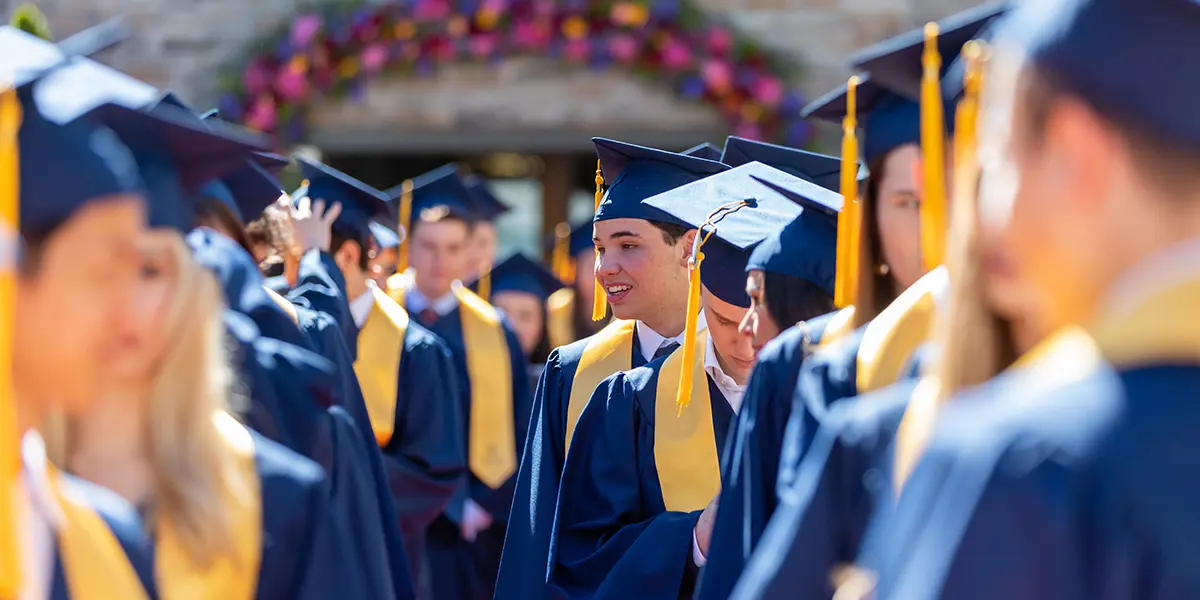
#2. Flexible, Rigorous Academics
Swiss schools offer unparalleled academic flexibility without compromising on rigor. Students can choose from top-tier global curricula, including:
- The International Baccalaureate (IB)
- British A-Levels
- French Baccalauréat
- American High School Diploma
This flexibility allows families to select the pathway that best aligns with their future university and career goals.
The teaching approach emphasizes critical thinking, problem-solving, and project-based learning. Rather than rote memorization, students engage with complex concepts through hands-on exploration. This methodology requires smaller class sizes, specialized resources, and highly trained educators.
The ability to offer multiple world-class curricula simultaneously demands significant investment in faculty expertise, materials, and administrative systems. Few schools globally can provide this level of choice while maintaining excellence across all programs.
#3. Multilingual, Global Education
Swiss schools don't just teach languages, they immerse students in them daily. Most graduates leave fluent in multiple languages, having developed genuine cross-cultural fluency through lived experience.
This approach builds global citizenship skills and confidence in international settings that can't be replicated in traditional classroom learning. The investment in native-speaking faculty and immersive programs across multiple languages requires substantial resources but produces genuinely multilingual graduates.

#4. Personal Growth Comes First
Swiss boarding schools prioritize character development alongside academic achievement. The boarding environment naturally builds resilience and independence through structured routines paired with comprehensive emotional support.
Students develop core values like kindness, service, and integrity through daily practice, not just theory. Programs incorporating mindfulness, journaling, and nature-based learning require specialized staff and facilities, but create well-rounded individuals prepared for life's challenges.

#5. Unmatched Co-Curricular Options
Co-curriculars aren't afterthoughts—they're integral to the timetable and educational philosophy.
Students access Olympic-level sports coaching, professional-grade music and theater facilities, and extensive arts programs. Leadership opportunities through debate, Model UN, and student government develop essential skills. Tech labs, entrepreneurship programs, and real-world simulations prepare students for modern careers. This breadth requires significant investment in facilities, equipment, and specialized coaching staff.
#6. Preparing Students for Real Life
Swiss schools excel in life-readiness through practical skill development. Financial literacy and entrepreneurship programs teach real-world money management. Public speaking and leadership training build confidence and communication skills. Some schools even run business incubators, host TED-style talks, and organize global summits. Graduates leave with both hard and soft skills that employers and universities actively seek.
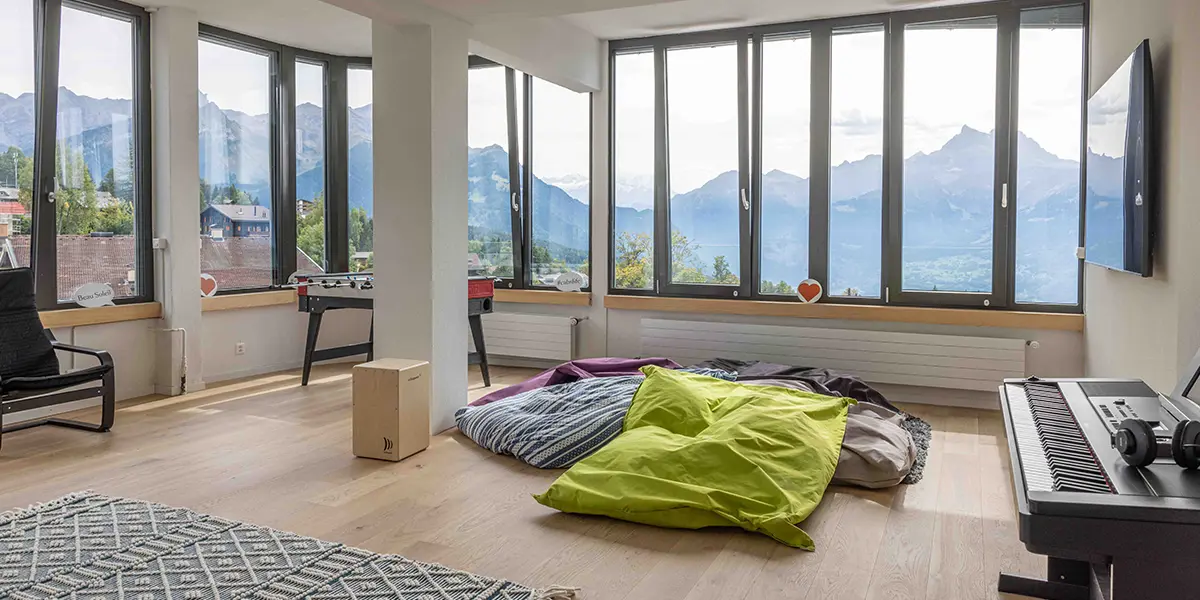
#7. Safe, Stable, and Private Environments
Switzerland's political stability and exceptionally low crime rates provide an ideal educational setting. School campuses offer discreet, secure environments with 24/7 pastoral care and on-site health and mental wellbeing teams.
This level of security and privacy particularly appeals to high-profile families seeking trusted environments for their children. The comprehensive care infrastructure requires significant ongoing investment, but ensures students can focus entirely on their development.
#8. Lifelong Value & Global Connections
Swiss boarding schools continue opening doors long after graduation. Elite alumni networks span business, politics, and the arts, providing career opportunities and mentorship. These networks often include royalty, diplomats, business leaders, and celebrities who maintain strong ties with their schools.
The shared experience creates lifelong friendships across continents and cultures. Perhaps most importantly, graduates develop a strong sense of identity and purpose that serves them throughout their lives. This enduring value and access to influential networks justifies the initial investment many times over.
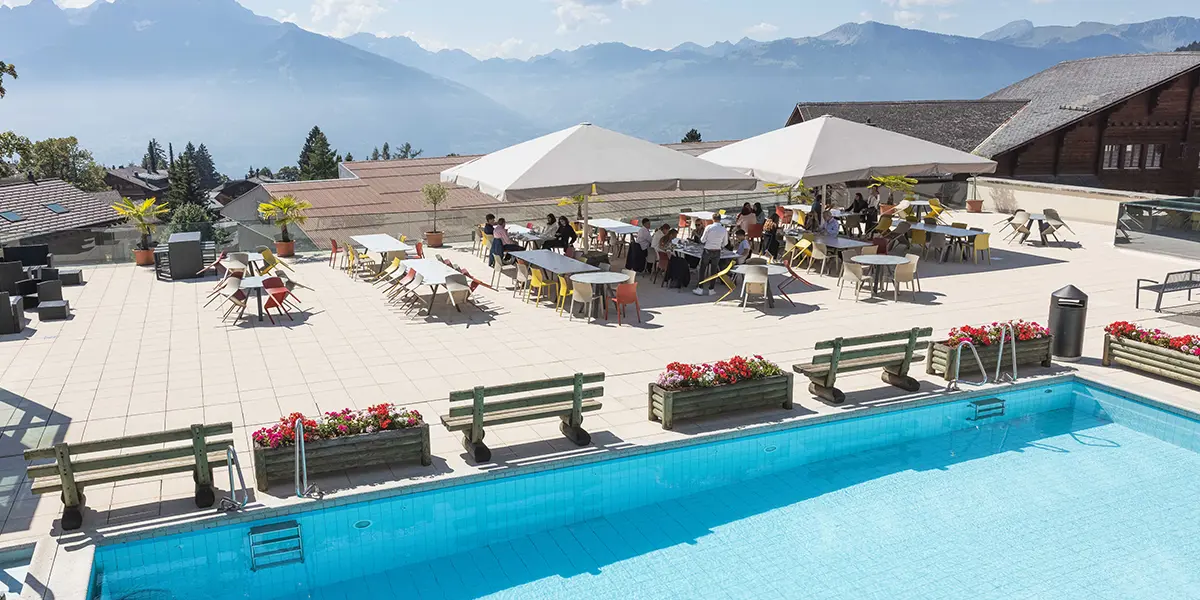
#9. World-Class Campus Facilities
Swiss boarding school campuses resemble luxury resorts more than traditional schools. Nestled in stunning alpine settings, they feature ski slopes, equestrian centers, music conservatories, Olympic-size swimming pools, robotics labs, and planetariums.
Maintaining these world-class facilities year-round requires serious investment. It's not just about having good facilities—it's about having the best and ensuring every student has access to them. This extends to professional-grade performance spaces, indoor climbing walls, and even gourmet kitchens for culinary arts programs.
The grounds are landscaped and maintained to impeccable standards, creating an atmosphere more like a five-star wellness retreat than a school. This emphasis on environmental quality promotes wellness and focus, encouraging students to thrive academically and personally.
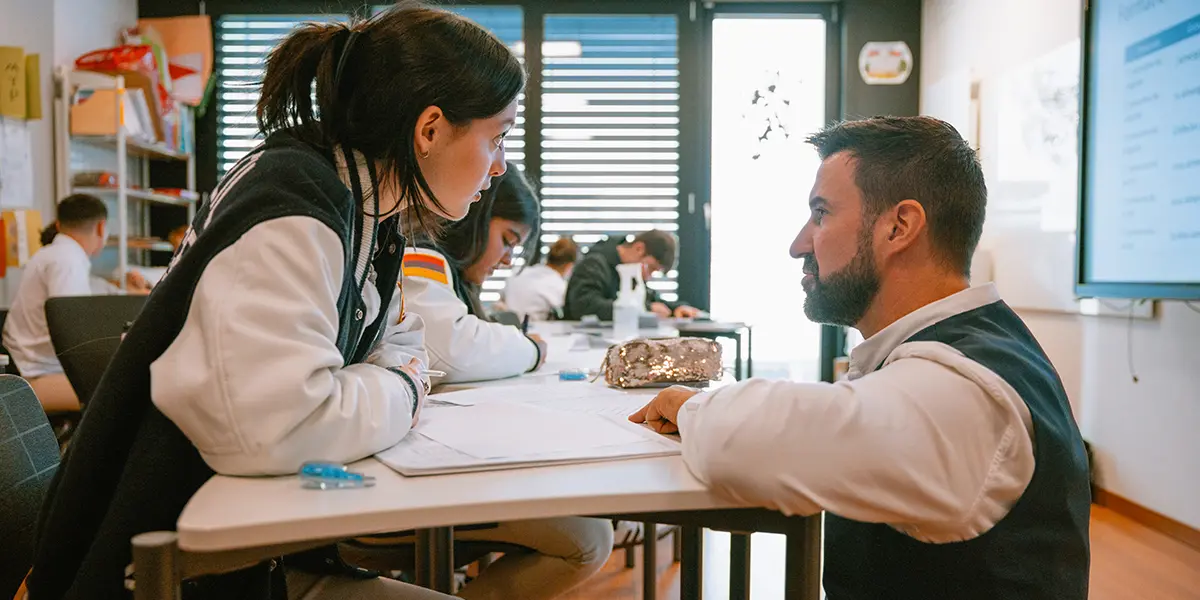
#10. Personalized Learning & Small Class Sizes
Swiss private schools emphasize truly tailored education through small class sizes and low student-to-teacher ratios. Teachers can give each student individual attention, adapting to their strengths and supporting their weaknesses.
This bespoke academic support is labor-intensive and requires highly qualified staff. Beyond subject teachers, schools employ dedicated learning support specialists, college counselors, language tutors, and enrichment coordinators. Some schools even create customized timetables for elite athletes or musicians who require flexibility.
This level of personalization and adaptability requires a responsive, highly coordinated academic environment that few institutions can afford to maintain.
#11. 24/7 Boarding Care & Comprehensive Support
Unlike day schools, boarding schools provide round-the-clock care including meals, accommodation, emotional support, and supervision. This requires extensive staffing, high-quality facilities, and seamless operations.
Boarding staff act as house parents, mentors, and first responders. Counselors, nurses, and psychologists are available on-site to support student wellbeing. Modern campuses feature medical teams operating full-time infirmaries, and wellbeing is built into school life through structured programs.
Families pay for peace of mind, knowing their children are not only safe but thriving in a structured, nurturing environment with professional support available 24/7.
#12. Sustainability & Future-Ready Values
A growing number of Swiss schools invest heavily in sustainability initiatives. From eco-certified buildings to farm-to-table dining programs, these schools demonstrate environmental stewardship. Students participate in sustainability councils, zero-waste challenges, and contribute to energy strategies.
These initiatives reflect broader values of responsibility, global awareness, and future readiness. Whether it's solar panels on dormitories or carbon-offset travel schemes, the investment is substantial but the message is powerful. Schools are preparing students not just for success, but for responsible leadership in a changing world.
Frequently Asked Questions (FAQ)
| Q: Are Swiss schools more expensive than UK or US boarding schools? |
|---|
|
A: In many cases, yes. Swiss schools often surpass their UK and US counterparts in terms of annual fees. However, they also tend to offer more comprehensive packages, with fewer hidden costs and more inclusive services. |
| Q: What makes Swiss boarding schools unique? |
|
A: Their global mindset, multilingual approach, and holistic educational philosophy make Swiss schools stand out. Students emerge not only academically strong but also emotionally and socially prepared for international life. |
| Q: How long have Swiss schools been educating international students? |
|
A: Many prestigious Swiss boarding schools were established in the late 19th or early 20th century and have been educating international elites for generations. They've welcomed royalty, aristocrats, diplomats, and future business leaders, creating a legacy of excellence that spans over a century. This historical prestige and proven track record of developing world leaders add significant value to the educational experience. |
| Q: Is the cost of Swiss schools worth it? |
| A: That depends on your goals. For families seeking a safe, globally focused, academically rigorous, and well-rounded experience, many find the investment worthwhile. The long-term benefits, including university access, personal development, and networking, often justify the fees. |
| Q: Are scholarships or financial aid available? |
| A: Some schools, including Beau Soleil, do offer scholarships or bursaries. However, competition is high, and most families pay full fees. Bursaries are typically merit-based or need-assessed, and places are limited. |
|
Q: Can you pay monthly or is it upfront? |
| A: Payment terms vary by school. Most offer structured payment plans, though upfront payments may offer discounts. Schools generally provide clear financial information during the admissions process. |
|
Q: Do students have access to universities abroad? |
| A: Yes. Graduates from Swiss boarding schools go on to top-tier universities around the world, from Oxford and Harvard to École Polytechnique and the University of Tokyo. Their international qualifications and language proficiency make them highly competitive applicants. |
|
Q: How do Swiss schools support student wellbeing? |
| A: Wellbeing is central to the Swiss boarding school model. Daily routines include structured downtime, healthy meals, mental health education, and open access to counseling. Schools also foster a culture of kindness, respect, and resilience. |
|
Q: What global experiences do students have beyond the classroom? |
| A: Swiss schools offer transformative international programs that go far beyond traditional education. Students participate in cultural expeditions, leadership retreats in the Swiss Alps, environmental conservation trips to destinations like the Galápagos, and service projects with NGOs in Africa or Asia. These experiences build global awareness, independence, and social responsibility while creating lifelong memories and perspectives that can't be gained in a traditional classroom setting. |
|
Q: What role does outdoor education play? |
| A: Outdoor education plays a major role. Many Swiss schools incorporate skiing, mountaineering, hiking, and survival skills into their co-curricular programs. Students gain resilience, self-reliance, and a strong connection to nature, all within one of the safest and most beautiful countries in the world. |

